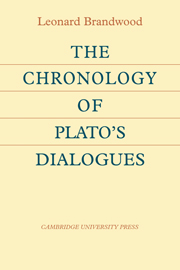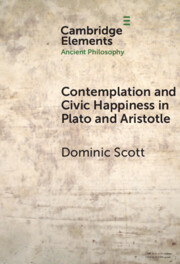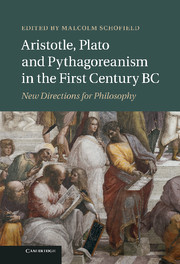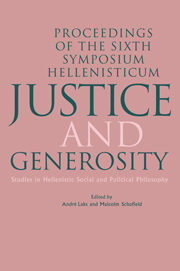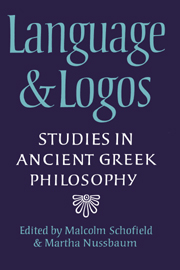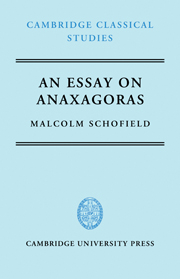How Plato Writes
Plato is a philosophical writer of unusual and ingenious versatility. His works engage in argument but are also full of allegory, imagery, myth, paradox and intertextuality. He astutely characterises the participants whom he portrays in conversation. Sometimes he composes fictive dialogues in dramatic form while at other times he does so as narratives. In this book, world-renowned scholar Malcolm Schofield illustrates the variety of the literary resources that Plato deploys to achieve his philosophical purposes. He draws key passages for discussion particularly, but not only, from Republic and the less well-known Laws and also shows how reconstructing the original historical context of a dialogue and of its assumed readership is essential to understanding Plato's approach. The book will open the eyes of readers of all levels of expertise to Plato's masterly ability as a writer and how an understanding of this is crucial if we are to appreciate his philosophy.
- Provides a distinctive focus on Plato's versatility as a writer and thinker
- Sheds light on problematic philosophical issues in the interpretation of key passages in the dialogues
- Clearly and accessibly written for readers of all levels of expertise
Reviews & endorsements
'This is a very welcome volume by a very distinguished scholar. The topics include Plato's epistemology and metaphysics, but most of the chapters focus on Plato's ethics, political philosophy, and psychology. In reading the dialogues, Schofield deftly combines literary and historical analysis with analytical rigor and such breadth is rare in Plato interpretation. Any student of Plato will gain much by reading and thinking deeply about the this book.' Chris Bobonich, Stanford University
'A fascinating intervention on Plato by one of his leading contemporary readers, How Plato Writes offers a nuanced and multifaceted exploration of key features of Plato's texts: image and argument, paradox, intertextuality and the literary staging of philosophical conversation. Schofield's probing analyses of thorny passages and interpretive problems are essential reading for experts yet accessible to a wide audience. The different chapters of the volume combine to form an interconnected and illuminating reflection on the challenging, puzzling and often playful nature of Plato's philosophical provocations.' Shaul Tor, King's College London
'The erudition and wisdom ... sparkle on every page.' Edith Hall, Times Literary Supplement
'… this is an impressive overview of key passages in Plato's work, which stimulates further thought. Overall, the interpretations are characterized by a very welcome, high level of context sensitivity, many intertextual references and, at the same time, a precise and analytical approach.' Abida Malik, Sehepunkte
Product details
No date availableAdobe eBook Reader
9781108674232
0 pages
Table of Contents
- Part I. Approaches to the Corpus:
- 1. Plato in his Time and Place
- 2. When and Why Did Plato Write Narrated Dialogues?
- 3. Against System: the Historical Plato in the Mid-Victorian Era
- Part II. Argument and Dialogue Architecture:
- 4. Callicles' Return: Gorgias 509-22 Reconsidered
- 5. Likeness and Likenesses in the Parmenides
- 6. The Elusiveness of Cratylus in the Cratylus
- Part III. Myth and Allegory in the Republic:
- 7. The Noble Lie
- 8. The Cave
- Part IV. Projects, Paradoxes, and Literary Registers in the Laws:
- 9. Religion and Philosophy in the Laws
- 10. The Laws' Two Projects
- 11. Plato, Xenophon, and the laws of Lycurgus
- 12. Injury, Injustice, and the Involuntary in the Laws
- 13. Plato's Marionette
- 14. Paradoxes of Childhood and Play in Heraclitus and Plato.


